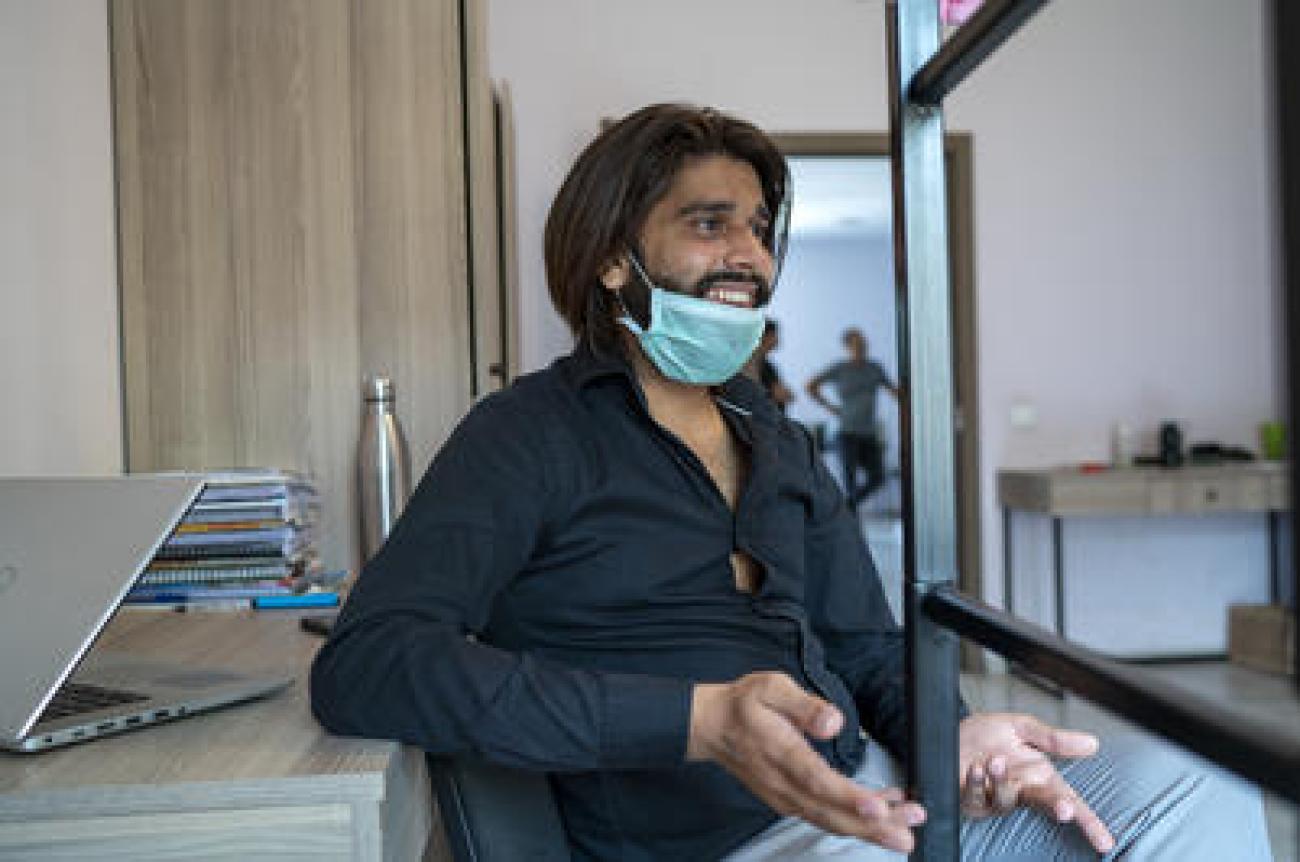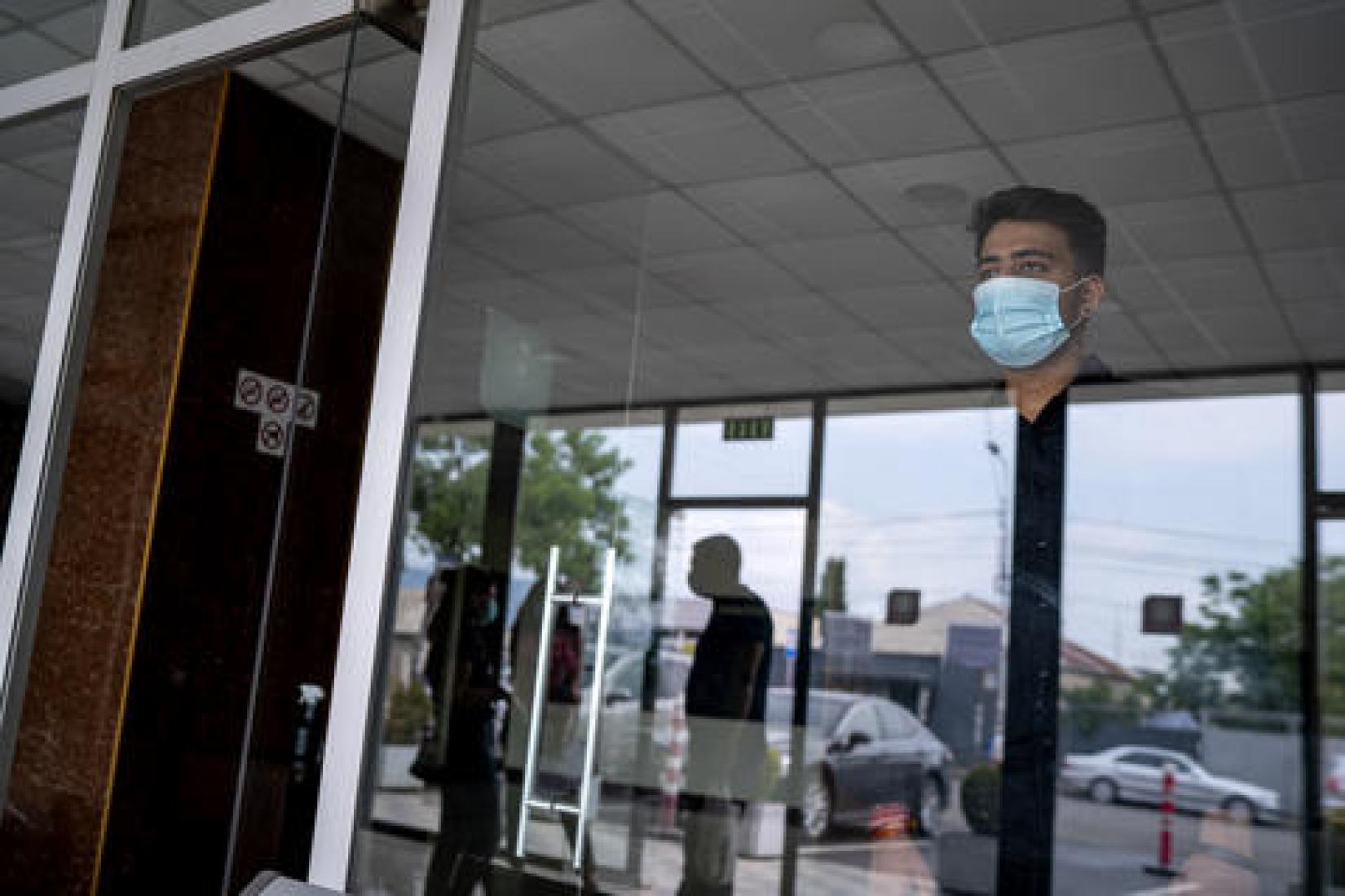COVID-19 Faces of Migration

Story of Nitish (age 21), Vipin (age 21) and Yash (age 21), migrants from India, living in Tbilisi
Nitish spent the first 21 years of his life in Delhi, India. He followed his friend’s advice and decided to come to Georgia to receive good education in the field of medicine and enjoy many wonders, which the country has to offer. Nitish feels comfortable in Tbilisi, but this was not always the case. At the beginning he felt uneasy and it took time for him to adjust to the new environment and culture. But he soon managed to learn the language and made many friends, including Georgians.
Nitish devotes most of his time and energy to his studies. He believes that he made a right choice by coming to Georgia to study medicine. Despite his busy schedule, Nitish still manages to find time to visit many beautiful places across Georgia.
During COVID-19, Nitish misses the most his regular lectures, face to face time with his teachers and dynamic discussions with his friends. Now that Georgia has lifted some restrictions, Nitish is back to his routine – going far walks and playing volleyball with his friends Vipin and Yash.

For Nitish’s friend Vipin, also a medical student from Delhi, India, life during COVID-19 turned out to be more difficult than he expected. His dynamic everyday life changed drastically almost overnight – no more lively lectures, no more parties and trips. Though Vipin received support from Indian Embassy and manages to keep safe and healthy during COVID-19, he hopes that life will go back to normal soon.
Nitish and Vipin spend most of their time with their friend Yash. Yash is also a student in Caucasus Medical University. He loves Georgia and is especially fond of Batumi, Mestia and Rabati. These are the places he managed to visit before the COVID-19 started and restrictions were imposed to ensure safety of people in Georgia. Yash feels comfortable in Tbilisi, but he misses his home in India and his beautiful village – Konda. Yasha is very disciplined – he starts his day at 5 am each morning, studies hard and plays sports with his friends.
Nitish, Vipin and Yash are looking forward to their lives in Tbilisi post COVID-19. Nitish thinks he managed to handle COVID-19 well. He stayed informed and followed all the recommendations. It is difficult for him to watch all the suffering that other people around the world must go through. Vipin worries, that the virus may damage his mental health and wellbeing of people around him. Once the COVID-19 is over, Vipin plans to travel and visit all his friends and family in India. As for Yash, once COVID-19 is over, he plans to travel and socialize more and maybe even make some Georgian friends.
During the spread of Coronavirus, Nitish and his friends received help from both the Georgian Government and the Indian Embassy. Several websites created by the Georgian Government helped them obtain complete information. Indian students also had the opportunity to return to their homeland on a special flight. The Indian Embassy also handed over masks, gloves and other means of protection against the virus to Indian students in Georgia.
The COVID-19 pandemic is first and foremost a health crisis. The threat remains the virus: not people, not migrants, not stranded, or displaced persons. The pandemic is borderless; people are affected regardless of their nationality, ethnicity, religion, or status.
Migrants are not inherently more vulnerable to, or at heightened risk of, contracting infectious diseases. Rather, it is the conditions in which they migrate, live, or work that influence or compound health risks, including access to health services.
As an immediate impact, travel restrictions and border closures have left thousands of migrants stranded around the world, from labourers to international students, in need of assistance and in often precarious situations.
The COVID-19 pandemic has shaken to the core international trade and travel. This is not limited to migrant workers but also affects tourists, businesspersons, students, cross-border trade, as well as free movement and regional integration regimes. The closure of borders has widespread implications, including for future migration dynamics. Where and when travel and mobility resume, additional health requirements will be put in place starting from the origin, and including transit and destination countries, applying to a larger and more diverse group of migrants than before the COVID-19 pandemic.
Globally IOM is ensuring full inclusion and social cohesion of migrants and societies through evidence-based public discourse, communication and information campaigns to dispel fears and misconceptions.
This pandemic has revealed how none will be safe until all are safe. And this requires a shared and collective interest in the safety and well-being of all.


